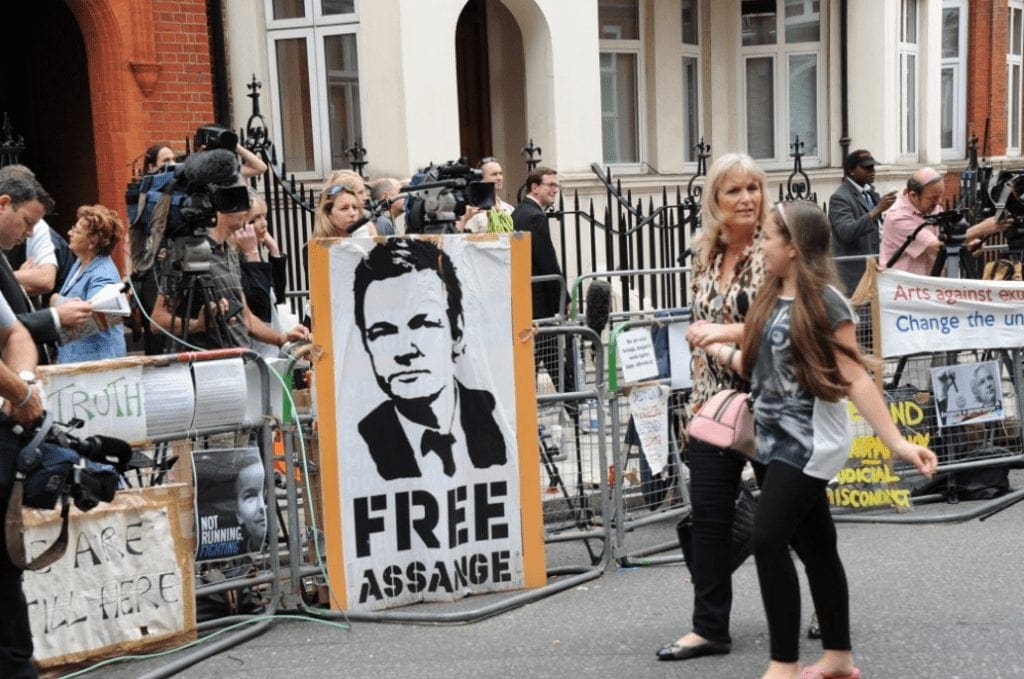The Trump administration has taken a bold step in undermining First Amendment rights by indicting Wikileaks founder Julian Assange for revealing classified documents under the Espionage Act.

This is the first time that a publisher has been charged under this law. The Justice Department’s indictment charged Assange with 16 counts of receiving or disclosing material leaked by Chelsea Manning, an Army intelligence analyst at the time. The actions took place from 2009 to 2010.
The charges cite provisions of the Espionage Act that criminalize the disclosure or obtainment of any defense information that “could be used to injure” the U.S government. This law does not draw an exception between reporters and publishers, but previous administrations have abstained from using the law against journalists out of fear of violating the First Amendment.
John Demers, the head of the Justice Department’s National Security Division, said: “The department takes seriously the role of journalists in our democracy and we thank you for it.”
Demers then added that “It has not and never has been the department’s policy to target them for reporting.
But Julian Assange is no journalist.” Demers claims that WikiLeaks’ publication of the names of U.S. government sources put people in China, Iran, and Syria. WikiLeaks declared that the prosecution marks “the end of national security journalism and the First Amendment.”
The Wikileaks founder also received a 50-week sentence for skipping bail in the U.K. in 2012. The past month has been hectic for Assange, as he was originally arrested in April at the Ecuadorian embassy in the U.K. and could now face extradition to the U.S.
Then President Barack Obama invoked the Espionage Act more than all previous presidents combined, and Trump is now following in his footsteps. Assange could face 180 years in prison if he is convicted on all the charges levied against him.
Assange has been one of the fiercest critics of defense interests and has made it a point to expose corruption at the highest levels of government. For that reason, political elites want to silence him.
The Espionage Act, which was passed in 1917, is living up to its original intent. It was used during World War I, along with the Sedition Act, to put the clamps down on anti-war speech and others who “interfered” with the war effort. One of the most famous people prosecuted under the Espionage Act was socialist activist Eugene V. Debs.
Slightly over a century later, the Espionage Act’s tyrannical legacy is being channeled again to silence the most prolific leaker of our generation in Julian Assange.
For a president who benefited from Assange’s leaks on the campaign trail in 2016, it would be disgraceful if Assange is fully prosecuted under Trump’s watch.
Beyond cracking down on leakers, this latest arrest could open up a Pandora’s Box of free speech abuses for the general populace.

























